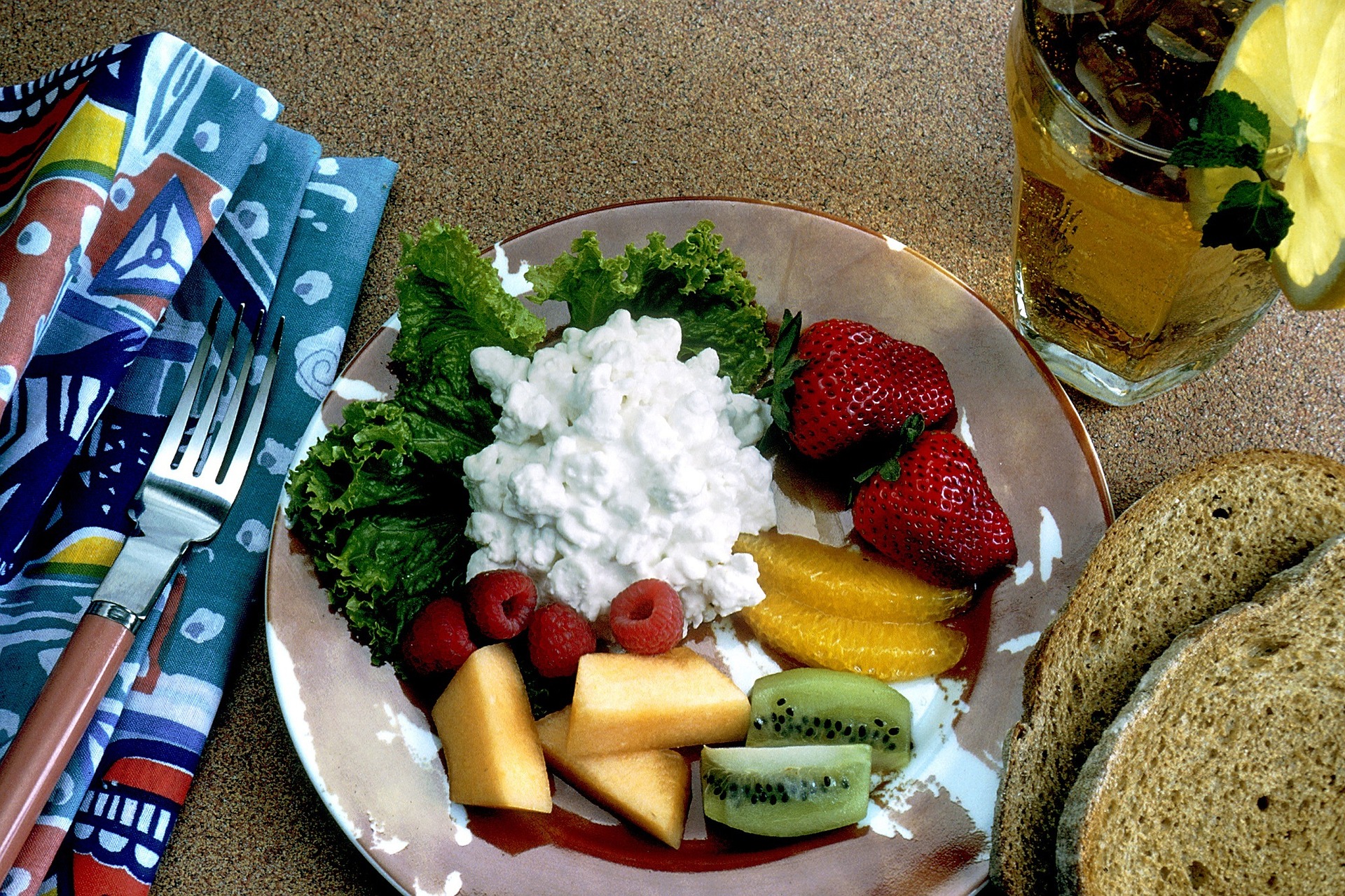Other than one being more lumpy than the other, what’s the difference between these two soft cheeses?
- Cottage cheese: an extremely soft, or loose, white, mild-flavored cheese made form skim-milk curds, usually without rennet.*
- Ricotta cheese: a soft Italian cheese that resembles cottage cheese.
And:
- *Rennet: the lining membrane of the fourth stomach of a calf.
Basically, when milk or cream is separated into curds and whey, the curds are used to make cottage cheese and the whey ricotta; curds are chunky while whey is liquid-y. So in a way, the two cheese are actually exact opposites.
As the curds form, the whey separates and is drained away. Curds are mixed with cream and other ingredients to form cottage cheese. Whey is left to ferment for a day or two, then is heated and placed in a cheesecloth to form ricotta.
They look similar, and are sold in the same type of containers. They can be used interchangeably in certain recipes (lasagna) but not in others (cheesecake).
Cottage cheese:
- Has a mild, creamy flavor with a hint of saltiness.
- Has a chunky texture.
- Can be enjoyed on its own, often with fruit or cinnamon.
- Is divided into small curd and large curd types.
Ricotta cheese:
- Has a mild, sweet flavor.
- Has a smooth but grainy texture.
- Is not typically eaten on its own, but is primarily used as an ingredient.
Their nutritional content depends on what type of milk is used, but cottage cheese tends to be healthier.

Comments
2 responses to “Difference between: cottage cheese and ricotta cheese”
How interesting! I did not realize that ricotta is made from whey and is fermented. You mentioned rennet in the definitions. Where is it used in this process? Is it used in both cheeses?
From Cheesemaking.com: “After the milk has been acidified, rennet is added. This causes the proteins in the milk to form a curd and allows the liquid to separate and run off as whey.”
But what’s interesting is the Dictionary.com definition of cottage cheese says it’s usually made “without rennet.” I looked into that a bit more and it looks like if you don’t use rennet to make cottage cheese, you’re probably using vinegar or lemon juice instead.